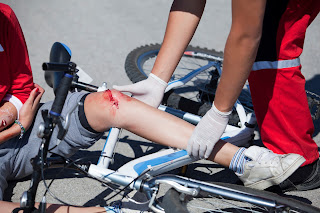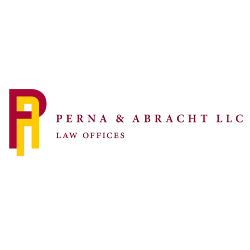Riding a bicycle is a convenient, affordable way to get around and can be great for your health, too. However, because bicyclists often share the road with motor vehicles, there is also potential for serious accidents and injuries. A bike accident can be life changing, and if a motorist or another party is responsible for causing injury, they may be liable for damages. If you or a loved one has been hurt in a crash, it is critical to find a top accident attorney who understands how to accurately value your claim and fights to help you recover the full and fair compensation you need.
Common Causes of Bicycle Accidents and Injuries
Even the most cautious cyclist can be hurt in an accident caused by a negligent driver. These types of crashes are often caused by:
- Distracted driving
- Drowsy driving
- Drivers crowding cyclists or following too closely
- Speeding
- Lane switching or weaving through traffic
- Running red lights, stop signs or ignoring other traffic signals
- Failure to yield
- Driving while impaired
Because bicyclists do not have protection surrounding them like occupants of other vehicles do, they may sustain injuries such as broken bones, road rash, cuts and lacerations, head, neck and spine injuries, amputation, disfigurement and traumatic brain injury. These types of conditions can have long-term physical, emotional and financial consequences for victims and their families.
Pursuing Compensation after a Bicycle Accident
There are many reasons why it is important to seek the counsel of an attorney if you or a loved one has been injured in a bicycle accident. Figuring-out who may be liable and proving fault is challenging to do on your own, especially when you’re hurt and trying to recover. Dealing with insurance adjusters can be tricky, as they are looking-out for the best interests of the insurer, not you or your family. They do whatever they can to offer minimal settlement amounts or deny claims altogether.
Unless you are familiar with how personal injury claims work, it is extremely difficult to put an accurate value on the cost of future medical bills, future wage and income loss, pain and suffering, and other damages. Insurance companies know this and will not hesitate to take advantage of your inexperience if they can. The best car accident lawyers understand how to prove negligence, fight to protect your interests and accurately value your claim.
In addition, extensive investigation is usually required in bike accident cases. Multiple parties may be liable for damages, and you may be entitled to pursue compensation from your own auto insurance policy if you have one. An attorney will determine all possible sources of compensation and handle all of the legwork necessary to pursue maximum compensation for you, including:
- Investigating the accident
- Collecting evidence
- Employing the knowledge of accident experts
- Discussing the scope and severity of your injuries with your medical providers and how they have affected your life
- Negotiating with all insurers
- Taking your case to trial if necessary
Most bike accident lawyers offer free initial case evaluations, so you really have nothing to lose. Contact an attorney to learn more.
This blog was originally posted on https://www.pa4law.com/receiving-fair-compensation-for-injuries-suffered-in-a-bicycle-accident/

























